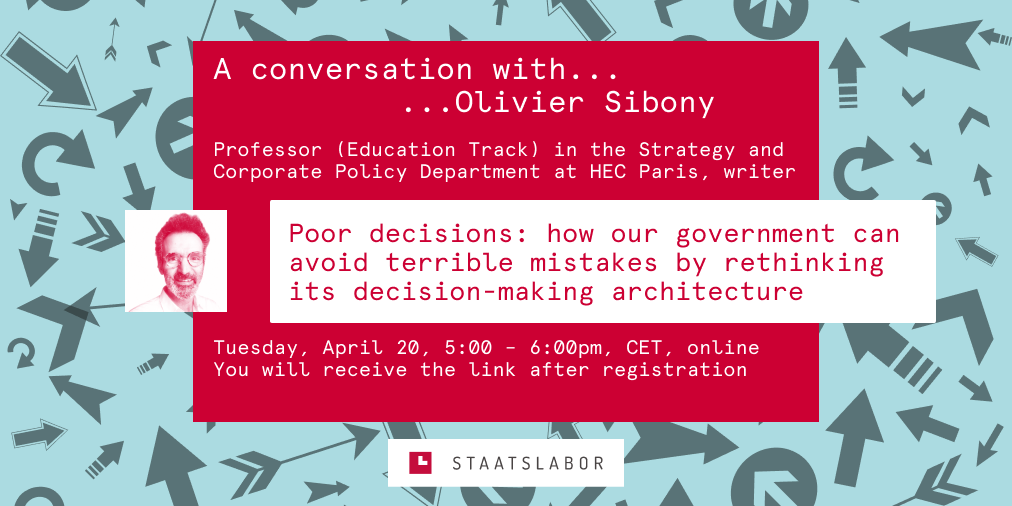Governing is about making decisions. Ideally good ones. But making good decisions is tough under the best of circumstances. It’s even tougher in a pandemic, when confusion reigns and reliable information is hard to come by.
Our guest Olivier Sibony argues that civil servants can avoid terrible mistakes by rethinking their decision-making architecture. That is, by rethinking the procedures we use to arrive at decisions, we can reliably avoid walking into the many traps that lure even the brightest and most experienced decisionmakers.
No one could be better placed to speak about good decisionmaking in government than Olivier Sibony. He is the author of ‘You’re About To Make a Terrible Mistake!’ for which he received the Manpower - HEC Paris Foundation Grand Prize for the best management book of the year. His upcoming book, Noise: A Flaw in Human Judgment, co-authored with Daniel Kahneman (Nobel Prize in Economics) and Cass R. Sunstein, will be published in May 2021 (pre-orders available here)
Sibony is a Professor at the Strategy and Corporate Policy Department of HEC Paris and an Associate Fellow at the Saïd Business School at Oxford University. He is also a lecturer at Polytechnique, ENA, and various other European academic institutions, where he teaches strategy, decision-making and problem-solving techniques. His work focuses on the effect of cognitive and behavioural biases, in particular on strategic decision making, innovation and transformation. He has published numerous articles on this topic, notably in the Harvard Business Review and the MIT Sloan Management Review.
Our conversation, titled “Poor decisions: how our government can avoid terrible mistakes by rethinking its decision-making architecture”, started with an interactive presentation led by our guest speaker and was followed by a discussion with the participants.
For further information on Olivier Sibony’s work, follow him on Twitter (@SibOliv) or visit oliviersibony.com
